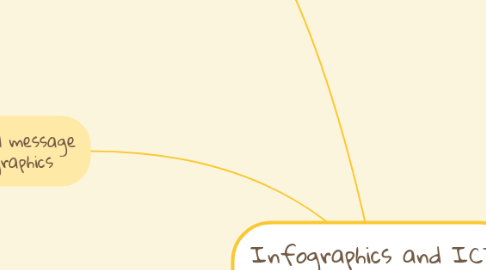Infographics and ICT Projects
by Jayzel Calma

1. The social power of social media
1.1. Promote social change or advance reforms Support social justice or create social movements Access to those who are impoverished, hurting, left out, or victims Stop bullying or discrimination Help during calamities or tragedies Allow people to have responsibility to engage as citizens
2. Elements of digital citizenship
2.1. Access Commerce Communication Literacy Etiquette Law Rights and responsibilities Health and wellness security
3. ICT AS Medium for advocacy and developmental communication
3.1. Advocacy is a process of supporting and enabling people to express, defend and promote their rights, concerns and views. ICT can help in accessing learning resources for students, announcement of important information for the people, and communicating government services to the people.
4. Developing an ict project for social change
4.1. To be able to succeed in the implementation of your ICT project, it is the team head or project manager’s responsibility to define the work and assign the persons responsible for the work of the project to run smoothly, be finished on time, and within the set budget.
5. Principles of visual message design using infographics
5.1. INFOGRAPHICS – visual presentations of information that use the elements of design to quickly communicate an idea.
5.2. WAYS THAT INFOGRAPHICS CAN BE USED: Presenting survey data Simplifying a complicated concept Explaining how things work Comparisons
5.3. PRINCIPLE IN CREATING AN INFOGRAPHIC: Be creative Be unique Be simple Use graphics and visuals Use the forwarding tool
5.4. INFOGRAPHIC ELEMENTS AND TOOLS: Graphs and bars Pies and icons Human infographics Timeline infographics Puzzle pieces
6. Infgraphics
7. ICT AS PLATFOrm
7.1. ICT is a tool, medium and force in bringing about the action and mobilize change in a population, society, or culture. It is the fastest way to spread, share, and access information anywhere in the world.
8. Digital citizenship and the Filipino people
8.1. T.H. Marshall’s online citizenship traditions: Liberalism – political philosophy founded on the ideas of liberty and equality Republicanism – ideology of being citizen and the people are the sovereign power. Ascriptive Hierarchy – no one person or organization is in the control over the internet


